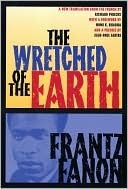More on this book
Community
Kindle Notes & Highlights
"O my body, make of me always a man who questions!"
I want to turn now to Fanon's exploration of the psycho-affective realm, which is neither subjective nor objective, but a place of social and psychic mediation, and — if I may quote Fanon out of context—"the glowing focal point where citizen and individual develop and grow. . . ."30 It is Fanon's great contribution to our understanding of ethical judgment and political experience to insistently frame his reflections on violence, decolonization, national consciousness, and humanism in terms of the psycho-affective realm—the body, dreams, psychic inversions and displacements, phantasmatic
...more
Fanon acknowledges the enormous significance of this phenomenological level of life when he opens his essay "On National Culture" with one of his most enigmatic and inspiring pronouncements: "Each generation must discover its mission, fulfill it or betray it, in relative opacity."68 I turn to that issue by first returning to my beginning: What forms of unhappy consciousness prevail among the colonized who feel threatened from all sides? How does the body speak in extremis, how does the mind withstand? "Colonialism forces the colonized to constantly ask the question: 'Who am I in reality?'"69
...more
Fanonian violence, in my view, is part of a struggle for psycho-affective survival and a search for human agency in the midst of the agony of oppression. It does not offer a clear choice between life and death or slavery and freedom, because it confronts the colonial condition of life-in-death. Fanon's phenomenology of violence conceives of the colonized — body, soul, culture, community, history—in a process of "continued agony [rather] than a total disappearance."92 He describes this state of political consciousness and psychic being with a harrowing accuracy:
The colonized subject is always on his guard: confused by the myriad signs of the colonial world he never knows whether he is out of line. Confronted with a world configured, the colonized subject is always presumed guilty. The colonized does not accept his guilt, but rather considers it a kind of curse, a sword of Damocles. But deep down the colonized subject knows no authority. He is dominated but not domesticated. He is made to feel inferior, but by no means convinced of his inferiority. He patiently waits for the colonist to let down his guard and then jumps on him. The muscles of the
...more
Fanon, the phantom of terror, might be only the most intimate, if intimidating, poet of the vicissitudes of violence. But poetic justice can be questionable even when it is exercised on behalf of the wretched of the earth. And if, as I have argued, the lesson of Fanon lies in his fine adjustment of the balance between the politician and the psychiatrist, his skill in altering the "scale" between the social dimension and the psycho-affective relation, then we have to admit that he is in danger of losing his balance when, for instance, he writes: "Violence can thus be understood to be the
...more
What enables us to aspire to the fraught and fervent desire for freedom is the belief that human beings are capable of imagining what Fanon once described as a "time [that] must no longer be that of the moment or the next harvest but rather of the rest of the world."
In countries where colonialism has deliberately halted development, the peasantry, when it decides to revolt, very quickly emerges as the radical class. It is all too familiar with naked oppression, suffers far worse than the urban workers, and to prevent it from dying of hunger, nothing less will do than the demolition of every existing structure. If it triumphs, the national revolution will be socialist; if it is stopped in its momentum, if the colonized bourgeoisie takes over power, the new state, despite its official sovereignty, will remain in the hands of the imperialists. The case of
...more
The rival blocs take up opposite sides, they keep each other at bay, let us take advantage of this paralysis, let us enter history, and as we burst in let us make it universal for the first time. Let us fight. Failing other weapons, the patience of the knife will suffice.
shame, as Marx said, is a revolutionary feeling.
Poor colonist: his contradiction has been unmasked. He ought to kill those he plunders, like they say the djinns do. But that is now out of the question. Doesn't he have to exploit them as well? Failing to carry the massacre to the point of genocide, and servitude to a state of mindlessness, he cracks up, the situation is reversed, and an implacable logic leads to decolonization. Not right away. First of all the European reigns: he has already lost but doesn't realize it; he does not yet know that the "natives" are false "natives." He has to make them suffer, he claims, in order to destroy or
...more
This highlight has been truncated due to consecutive passage length restrictions.
Okay: you've got the message. Not quite, however, because you are not in their shoes. Not yet. Otherwise you'd know they have no choice: they accumulate. Two worlds, that makes two possessions: you dance all night long, at dawn you hurry to church to attend mass. Day by day the crack widens. Our enemy betrays his brothers and becomes our accomplice; his brothers do the same. The status of "native" is a neurosis introduced and maintained by the colonist in the colonized with their consent.


